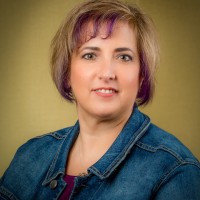
In this week’s Torah portion, Shof’tim, we find, as part of his final speech, Moses’ instructions to the People of Israel for setting up a justice system. He directs them to appoint judges and he cautions against showing favoritism or taking bribes. He establishes the rules for an investigation of a crime, when and how eyewitness testimony should be considered in the most serious of circumstances, and when to seek the assistance of others such as a magistrate or priest.
While the portion continues into other instructions, it also contains what is one of the most often quoted lines of Torah: “Tzedek, tzedek tirdof! Justice, justice shall you pursue, that you may thrive and occupy the land that the Eternal your God is giving you. (Plaut, 2005) [Deut. 16:20]
What does that mean exactly? And why is the word “tzedek” repeated?
Our Sages interpreted this passage in a very straightforward way to help the community understand the functionality of the court. Reish Lakish teaches that the repetition of the word “justice” indicates that is “not enough to merely judge with justice” but to also find compromise. It is in that interpretation of both justice and compromise that we may find meaning and justification for the work we do as Women of Reform Judaism and as Reform Jews.
In his commentary, Cantor David Reinwald equates the repetition of the word justice to the repetition of “Avraham, Avraham” in the Akeidah. That repetition is “a call to immediate action for Abraham that changes the course of everything to follow. It made me wonder if tzedek, tzedek is a similar cry out to us in our own pursuit of justice.”
Justice—social justice—is at the heart of what it means to many to be a Reform Jew. “It has become axiomatic that to be a Jew is to care about the world around us. To be a Reform Jew is to hear the voice of the prophets in our head; to be engaged in the ongoing work of tikkun olam; to strive to improve the world in which we live.”
We, as Reform Jews, read justice, justice shall you pursue as a call to action when our voices are most needed. The emphasis of saying the word twice leaves no uncertainty in the importance of the work that needs to be done.
Often, the call to action can feel overwhelming. It’s so important—Moses said it twice—but what can I do as one individual to make sure that I respond to the call? What does pursuing justice mean to me?
In recent years, we have rallied to pursue social justice in many places: gun violence and gun laws, civil rights, voting rights, reproductive health rights, economic justice--equal pay for equal work, and women’s rights just to name a few. As members of Women for Reform Judaism, we can bring our unique voices to each of these worthy issues to elevate them and shine a light on them to effect change—no matter how slow that change is coming.
During the 2021 WRJ Legislative Body Meeting, the Resolutions committee, on which I served, introduced two new, extremely timely resolutions:
The first, Labor Issues Impacting Women in the 21st Century, focuses on issues that disproportionately affect women, especially domestic workers, “tipped wage” workers, and others affected by nondisclosure agreements, and mandatory arbitration clauses. The resolution focuses on labor issues and “calls upon WRJ women to advocate for the phasing out of the tipped minimum wage, and for limiting employers’ abilities to require mandatory arbitration clauses, class action waivers, or non-disclosure agreements related to harassment, discrimination, and other workers’ rights violations as conditions of employment.”
The second resolution addresses a legacy of reproductive and gender-based violence against Black, Indigenous and Women of Color in North America. “This resolution calls upon our women to urge elected officials to pursue solutions to improve racial disparities in maternal health care and to pursue policy to ensure transparency, accountability and consent relating to sterilization, as well as reparations to victims.” These resolutions call upon WRJ members to educate themselves and their fellow Sisterhood members and to partner with other organizations who are working in these important areas.
To better assist individual Sisterhoods, this summer, WRJ has released the WRJ Advocacy Plan: From Education to Action. The plan is an overview of how social justice priorities are chosen. Despite recognizing that sometimes the work can be overwhelming, not doing the work, or not supporting the work done by our partners, is not an option. The plan explains how WRJ will work with our partners at the Religious Action Center of Reform Judaism (RAC) and the Union for Reform Judaism (URJ). We will collaborate with our other partners across the Movement and support the work they have already done, especially when they are better positioned to spearhead a particular issue.
The plan also enumerates the current highest priority issues for the WRJ. Those issues are:
- Pay equity and fair wages,
- Violence against women,
- Economic justice,
- Israel,
- Immigration reform and rights for refugees and asylum seekers, and
- Diversity, equity, and inclusion, specifically including racial justice.
Finally, the plan includes a variety of activities and actions that WRJ Sisterhoods, Districts, and other groups are encouraged to utilize. When we learn, and when we take action, the WRJ advocacy plan will come to life.
Tzedek, tzedek tirdof! Justice, justice shall “we” pursue! For information on how to get involved in the work of the WRJ or RAC, visit wrj.org or rac.org.
Rachel Roth is the Chief Operating Officer of the American Conference of Cantors and has almost 30 years of corporate and nonprofit management experience, as well as a Masters in Jewish Professional Studies from Spertus Institute. Rachel and her husband, Jonathan, who is also a Jewish communal professional, live in suburban Chicago with their dog, Chance. Rachel’s pronouns are she/her/hers.
Related Posts

Continuing to Educate and Empower People Together

My Challah-Making Experience


